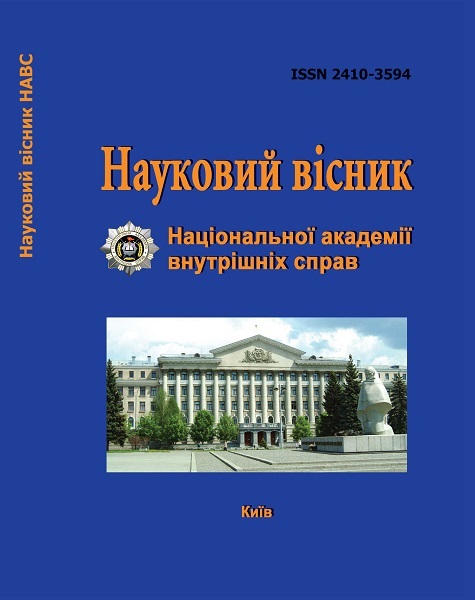The Constitutional and Legal Basis for Information Society Development in Ukraine
Abstract
The article deals with constitutional principles, legal basis formation and development of the information society. Special attention pаid views of the scholars of the nature and essence of this category, her relation with the national information space, a global information space, the information civilization. Selected the existence of objective conditions or the foundations of the existence of the information society: organizational, economic; technologic; legal. The latest include the laws and other normative legal acts, regulating the human right to information, access to public information, information resources, technology, telecommunications, intellectual property protection, privacy, freedom of speech, information security, etc. At the level of the Constitution of Ukraine practically is mentioned for informational society. Instead, according to the Article 17 of the Constitution of Ukraine «With the protection of sovereignty and the territorial integrity of Ukraine, ensuring its economic and information security are the most important functions of the State, the case of the Ukrainian people». Changes according and other provisions of the Constitution, in particular Article 32, 34, 50, according to which everyone has the right freely to collect, store, use and disseminate information orally, in writing or in another way – at your choice; is allowed to collect, storage, use and dissemination of confidential information about a person without her consent, except in cases specified by law, and only in the interests of national security, economic welfare and human rights. Study of the constitutional and legal foundations of the information society in Ukraine demonstrates their narrow understanding of the limited scope of the rights and freedoms that are implemented through the media, the openness of the authorities power, access to public information. Only in recent years legislators pay attention to information security, kìbersecurity. In the conditions of the present worth of talk and of State information policy, information sovereignty, national information space, national information law. These categories also have to get a proper constitutional rights.
Downloads
Abstract views: 132 PDF Downloads: 805
- Authors reserve the right to authorship of their own work and transfer to the magazine the right of the first publication of this work under the terms of the Creative Commons Attribution License, which allows other persons to freely distribute published work with mandatory reference to authors of the original work and the first publication of an article in this magazine.
- Authors have the right to enter into separate additional agreements on non-exclusive dissemination of the work in the form in which it was published in the journal (for example, to post an article in the institution's repository or to publish as part of a monograph), provided that the link to the first publication of the work in this journal is maintained.
- The journal's policy allows and encourages the posting of articles by authors on the Internet (for example, in electronic storehouses of institutions or on personal websites), both before the submission of this manuscript to the editorial office and during its editorial processing, as this contributes to the creation of a productive scientific discussion and positively affects the efficiency and dynamics of citing the published work.




